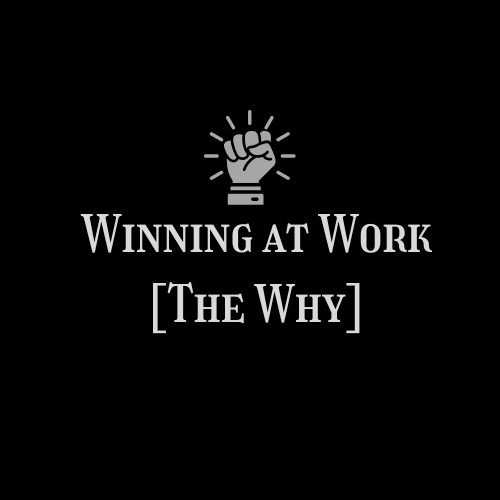

Why did I write this article? Simply because Winning feels good!
Why should you read it? Because I guess you wanna be a winner!
Is this article about how to win? No, it is deeper! This article is about the why of winning. You need a deeper why for a more robust how. You can figure out the how when you get the why.
So, let’s begin!
Oh, the feeling! First, I am no neuroscientist, but I can attest that winning feels great! Think of a time when you made a well-thought-out plan, followed through all the steps and finally achieved your aim. What thoughts, feelings, and perceptions did you experience in that moment of victory? That attainment of positive emotion itself is a worthy enough goal for humans to be drooling over winning. However, winning is difficult, very complex, and has various steps. It can be different in multiple contexts. For example, if you are a wrestler, you will not want to be formal and polite in the ring! But you sure would watch your behavior around your manager and other officials in the wrestling world. Although a phenomenal wrestler in the ring, Brock Lester struggled to win with the official side of the wrestling industry simply because the rules in the ring were not the same as those outside the ring. Rules inside the ring have to do with ‘hard skills,’ whereas those of relationships outside the ring have to do with rare and underrated ‘soft skills.’
Winning is your responsibility! To be a true winner, you must win both in and outside the ring – two contexts, two sets of rules. Both require different skill sets and competencies. What are those competencies? How to figure out the rules? How to master the art of winning small and winning big. Answering the why before addressing these important “what and how” questions is essential. Why aim at winning? Talking from a sheer evolutionary perspective that stresses the survival of the fittest, winning is not only a survival need for your professional life but also your moral duty and responsibility as a teammate, employee and citizen. By winning at work, you are letting lose the floods of positive emotions for yourself, your boss and your team. Winning produces a highly satisfying feeling, and it is contagious. When you win, others around you experience a surge of joy. Yes, those jealous types will also become your secret enemies and try to outsmart you, but that will only act as wind to your sail if you learn how to let it, which is another game altogether. Overall, your win is a win for all.
Game and sub-games. Life has a series of competitions and finales! So, you win sub-games that qualify you for the finale. Let me put it this way – wanting to win is an essential broad goal that will motivate you to achieve various sub-goals acting like rungs on a ladder. More than a dozen jaws drop when they see a master pianist hitting the right keys at the right time for 10 minutes straight without a single miss. Other than being entertained by music, the viewers in the audience subconsciously recognize this live art, which is the meta-game, as the result of thousands of hours of practice, hard work, planning, studying, and patience, which is a set of games which are the rungs that help him get to the pinnacle of excellency in his craft as a pianist.
Be that person. As an eleven-year-old boy, I admired a man in my neighbourhood. My admiration towards Mr. Philip starkly contrasted with abhorrence towards my father’s attitudes and behaviors. He was a true gentleman. He was a strong man, physically, mentally and spiritually. He could beat ten men but was highly gentle to his wife. His job as a music teacher was not lucrative, but he saw his work as a ‘noble’ profession. He dressed up neatly and always looked sharp. I wanted to be like him and even tried to emulate him in many areas of my life. He had no clue that small acts of winning in his private life greatly impacted me. So, be that person! Someone, somewhere, is watching you, drawing inspiration to become better because of the standard you are setting.